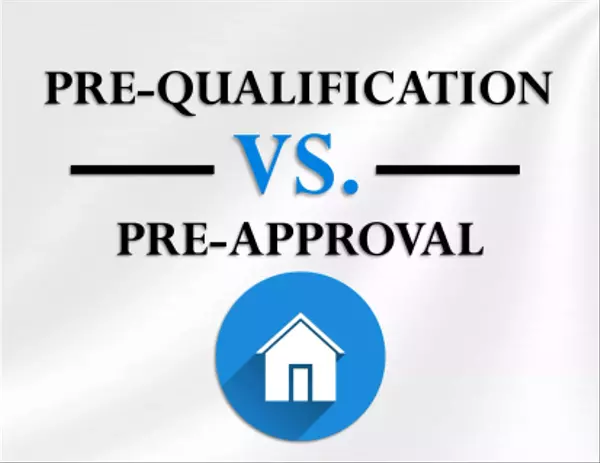What is a Buyer's Agent & What Do They Do?

Buyers play a crucial role in the real estate market. Whether you're a first-time homebuyer or a seasoned investor, navigating the process of finding and purchasing a property can be overwhelming. This is where a buyer's agent comes into play. In this blog post, we will explore the role of a buyer's agent and highlight the various tasks they undertake to help buyers successfully navigate the home-buying process. A buyer's agent, also known as a buyer's advocate, is a real estate professional who works exclusively on behalf of the buyer during the home-buying process. Unlike a seller's agent who represents the seller's interests, a buyer's agent is solely focused on finding the right property for their client and negotiating the best terms on their behalf. One of the primary responsibilities of a buyer's agent is to find the buyer a suitable home. They carefully listen to the buyer's preferences, such as location, size, budget, and specific features, and then conduct a comprehensive search to find properties that meet these criteria. This involves utilizing their extensive network, accessing industry databases, and leveraging their knowledge of the local market to identify potential homes for their clients. Once a buyer has identified a property they are interested in, the buyer's agent takes on the role of a negotiator. They use their market expertise to analyze comparable sales and market conditions to determine a fair market value for the property. Armed with this information, they negotiate with the seller's agent to secure the best possible purchase price and terms for the buyer. Their goal is to ensure that the buyer gets the best deal while avoiding any potential pitfalls or hidden costs. In addition to negotiating the price, a buyer's agent also schedules inspections for the property. Inspections are crucial to uncover any potential issues or defects that may exist within the property. The buyer's agent will coordinate with professional home inspectors, pest inspectors, and any other necessary experts to thoroughly evaluate the property. If any significant issues are discovered, the buyer's agent will work with the buyer to negotiate repairs or potential credits from the seller. A buyer's agent also acts as a facilitator throughout the home-buying process. They guide the buyer through the necessary paperwork, including contracts, disclosures, and other legal documents. They ensure that the buyer understands the terms and conditions of the agreements they are entering into and can provide professional advice and recommendations when needed. Furthermore, a buyer's agent understands the importance of timing in the real estate market. They have a keen eye for identifying opportunities and can advise their clients on the best time to make an offer or negotiate for a better deal. Their market knowledge allows them to stay ahead of trends and fluctuations, giving the buyer a competitive edge. In conclusion, a buyer's agent is an invaluable asset to any homebuyer. From finding the right property to negotiating the best terms, scheduling inspections, and facilitating the home-buying process, they are the buyer's advocate every step of the way. By leveraging their expertise and industry knowledge, buyers can navigate the complex real estate market with confidence and peace of mind. If you're in the market to buy a property, consider enlisting the services of a buyer's agent to ensure a smooth and successful home-buying experience.
Read MoreAdvantages vs. Disadvantages of Solar Panels

Advantages vs. Disadvantages of Solar Panels Solar panels have gained immense popularity in recent years, as homeowners increasingly look for sustainable and energy-efficient solutions for their properties. However, while there are undeniable advantages to installing solar panels on your home, it's important to consider the potential disadvantages as well. If you're a seller looking to list your home with solar panels, here are some key factors to keep in mind. Advantages of Solar Panels: 1. Cost savings: One of the most significant advantages of solar panels is the potential for long-term cost savings on electricity bills. By harnessing the power of the sun, homeowners can generate their own electricity and reduce their reliance on traditional energy sources. This can result in substantial savings over the lifespan of the solar panels. 2. Environmental benefits: Solar panels are a clean and renewable source of energy, which means using them can significantly reduce your carbon footprint. By choosing solar power, homeowners contribute to a greener and more sustainable future, making their property more attractive to eco-conscious buyers. 3. Increased property value: Studies have shown that homes equipped with solar panels tend to have a higher resale value compared to those without. Buyers are increasingly interested in energy-efficient homes, and solar panels can be a significant selling point, potentially increasing your property's market appeal. Disadvantages of Solar Panels: 1. High upfront costs: The initial installation of solar panels can be expensive, requiring a considerable investment upfront. While the long-term savings may outweigh this initial cost, it's important to consider whether you're willing to make this financial commitment before selling your home. 2. Aesthetics: Some homeowners find solar panels visually unappealing, as they can alter the overall look of the property. This may be a concern for buyers with specific design preferences, potentially limiting your pool of interested buyers. Selling a Home with Solar Panels: When it comes to selling a home with solar panels, transparency is key. Ensure you have all the necessary documentation regarding the installation, warranty, and maintenance of the solar panels. This will provide potential buyers with valuable information, reassuring them about the efficiency and reliability of the system. Also, provide your agent with information regarding how much you may still owe on the solar panels. Your agent will need to provide this information to the closing attorney when you sell. Additionally, when calculating the price of your home, take into account the value that solar panels bring. Highlight the long-term cost savings and environmental benefits to attract buyers who prioritize sustainability. In conclusion, the advantages of solar panels, such as cost savings, environmental benefits, and increased property value, can make them an attractive feature for potential buyers. However, it's important to consider the potential disadvantages, such as high upfront costs and aesthetic concerns. By understanding both sides of the coin, you can effectively market and sell your home with solar panels, appealing to a wider range of buyers.
Read MorePreapproval Vs. Pre-Qualification The Differences

Preapproval Vs. Pre-Qualification The Differences When it comes to buying a home, one of the most important steps is obtaining a mortgage. This process can be a bit overwhelming, especially for first-time homebuyers. However, understanding the differences between prequalification and preapproval can help ease the stress and streamline your home-buying journey. What is a prequalification? Prequalification is an initial step in the mortgage process. It is a rough estimate of how much a lender may be willing to lend you based on the information you provide. During prequalification, the lender will review your income, assets, and debts. However, keep in mind that prequalification does not require documentation verification, and it is not a commitment from the lender to provide you with a loan. How does prequalification help a homebuyer? Prequalification helps homebuyers by giving them a general idea of their purchasing power. By understanding how much a lender may be willing to lend you, you can determine a budget for your home search. This allows you to focus on properties that are within your financial range, saving you time and effort. What is a preapproval? A preapproval, on the other hand, is a more detailed process. It involves a thorough review of your financial documents, such as pay stubs, bank statements, and tax returns. The lender will also check your credit score during this stage. Based on this information, the lender will provide a written commitment to lend you a specific amount of money, subject to certain conditions. How does preapproval help a homebuyer? Preapproval provides homebuyers with several advantages. Firstly, it gives you a clear understanding of your borrowing capacity. This allows you to confidently make offers on homes within your price range. Additionally, preapproval makes your offer more attractive to sellers, as it demonstrates that you are a serious buyer who has already taken the necessary steps to secure financing. How do I apply for prequalification or preapproval? To apply for prequalification or preapproval, you will need to contact a mortgage lender. They will guide you through the process and provide you with a list of required documents. Once you have gathered all the necessary paperwork, you can submit your application. The lender will review your information and provide you with a decision. In conclusion, while prequalification and preapproval are both essential steps in the home-buying process, there are distinct differences. Prequalification provides a general estimate of your purchasing power, while preapproval offers a concrete commitment from the lender. By understanding the differences and benefits of each, you can make informed decisions and navigate the mortgage process with confidence. So, before you start searching for your dream home, take the time to get preapproved and enhance your chances of a successful and smooth home-buying experience.
Read More
Categories
Recent Posts










